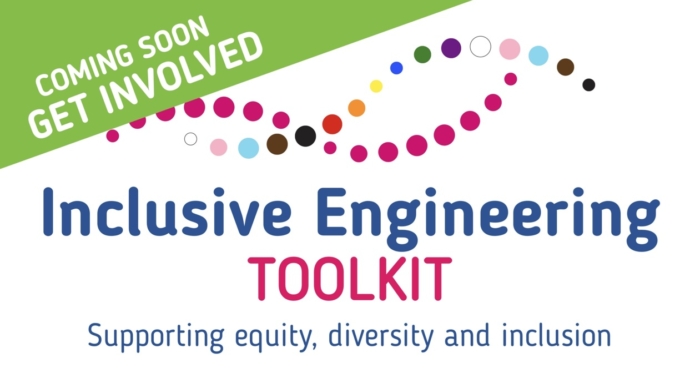 I was pleased to be invited to represent Engineering Professors’ Council members at the Westminster Higher Education Forum last week, on the subject of “Addressing the STEM Skills Gap”.
I was pleased to be invited to represent Engineering Professors’ Council members at the Westminster Higher Education Forum last week, on the subject of “Addressing the STEM Skills Gap”.
I was asked specifically to contribute to a session, chaired by Professor John Perkins, which discussed the well-trodden theme of “Increasing STEM applicants to university and meeting the needs of employers”. The questions which I and the other panel members were asked to ponder were, however, quite illuminating in terms of the perceptions of delegates from outside the higher education (HE) sector on where the problems and solutions lie. For example, the speakers were asked to provide a commentary on how quickly we expected the relaxation of Student number controls to improve the supply of STEM graduates and highlighted a few key initiatives, notably the Science Industry Partnership (SIP) for special consideration as a means of both “addressing the STEM Skills Shortage” and “creating a joined-up approach to STEM teaching”. We were also asked to address a question on how we might develop our curricula such that students develop the skills and experience required by employers”. Some of the questions from the floor also pressed for an explanation as to how, if there was indeed a STEM shortage, the Destination of Leavers from Higher Education (DLHE) outcomes for many STEM disciplines were poorer than in other disciplines.
It is tempting to be defensive in responding to such questions, but the last point in particular does seem to be increasingly driving Government to explore other options, such as the expansion of more vocational technical degrees and higher apprenticeship routes as alternatives to traditional university degree models – many of them at significantly lower cost to the student and with required input from employers.
Whether we agree with this argument or not, I would suggest that if we cannot produce some coherent and consistent messages across the engineering disciplines and all parts of the sector as to what our university degree system is aiming to achieve, the differences between skills, knowledge and understanding and between training (however high quality) for a job role and educating for a professional career – then we place ourselves at considerable jeopardy of having changes imposed upon us. It is not insignificant that our colleagues in Computer Science are currently facing a review of their systems for professional accreditation and registration on the premise that this isn’t producing the type of graduates that the market needs.
Amongst the points I made were:
- That there is an issue to be addressed in meeting the expectations of some employer groups, particularly as there is a significant gap between the resources at our disposal and the (very broad) range of skills required by employers– from high level technical and theoretical knowledge through well-developed interpersonal, leadership and professional communication skills to a detailed understanding of business processes.
- Given the level of education and skills with which many of our undergraduates arrive at university, is it realistic to expect all of these skills to be developed within a 3 or 4 year degree course– particularly when our own data suggest that once infrastructure costs are accounted for, the real costs of delivering existing engineering courses at university already exceeds the income available to us – and risks being further reduced post-General Election. I underlined that it is probably unrealistic to expect the market to resolve the shortage of STEM graduates simply by removing the cap on student numbers through the student number control mechanism. Although there is currently significant and heartening evidence of universities across the country making significant investments in STEM, this additional and expensive capacity-building can’t be sustained in the long term if the numbers simply don’t add up.
- On the issue of how we might better equip students with the skills needed for employment, I returned to the theme of industrial experience in courses, and the thorny issue that the numbers of students undertaking traditional forms of sandwich placement have fallen by 25% in less than a decade (Wilson Review 2012). It is my contention that, whatever systems we put in place to address this need to be scalable, financially viable and sustainable, from a university, employer, Government and student perspective. There are some high profile and very interesting initiatives currently available – such as the Science Industry Partnership (SIP) – which have attracted headlines, but given that the UK university sector is currently producing approaching 100,000 STEM graduates every year (around a quarter of which are engineers) is hard to see how these can offer a workable solution. To put it this in perspective, the undoubtedly excellent SIP Industry Degree scheme linking students with employers in a long term developmental relationship extended through their degree course is aimed at just 150 undergraduates in its initial phase.
The EPC (through its Engineering Education and Employability subcommittee) is, of course, currently looking at how we might address these challenges by a different approach. We’ve picked up the mantle from the Perkins Review task group to examine current models of innovative practice and recommend alternative and more flexible models by which we might design and deliver university engineering courses in which we integrate workplace based and academic learning so that these can be simultaneously achieved rather that consecutively (as per the sandwich degree model). With a more cost and time efficient alternative on offer, we might realistically hope to increase the quality and quantity of relevant industrial experience within our courses.
Contact us if you’d like to contribute to this project.
Simon Hodgson
President
March, 2015




